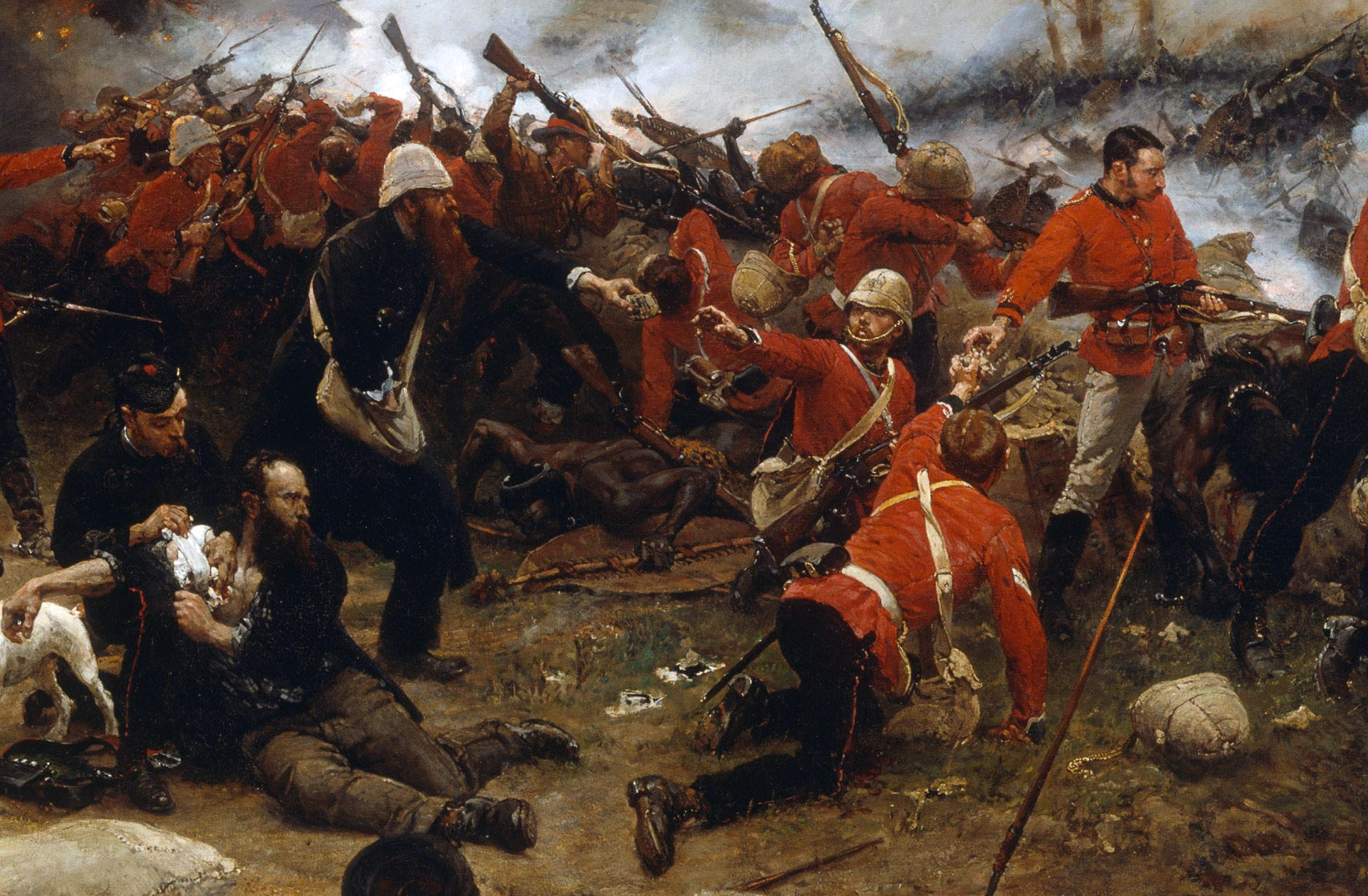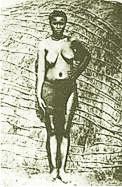|
Henry Francis Fynn
Henry Francis Fynn (29 March 1803 in Grosvenor Square, London, England – 20 September 1861 in Durban, Natal, South Africa) was an English traveler and trader. He was among the first Europeans to make contact with Shaka Zulu. Fynn, Coenraad De Buys, John Dunn and Nathaniel Isaacs were among the most famous of South Africa's so-called ''White Chiefs''. Early life Henry Francis Fynn was born in London in 1803. He was the first of five children of Henry and Elizabeth Fynn. His father worked for the East India Company, serving aboard an EIC ship sailing between London and Cape Town, until losing his post in 1806. By 1807, his father and mother had sold their property in England and had moved to Cape Town. Fynn, however, stayed in London with his aunt, who in 1809 successfully petitioned for his admission to Christ's Hospital. In 1816, Fynn left Christ's and, despite a request from his father that he join his family in the Cape, worked for two years in England as a surge ... [...More Info...] [...Related Items...] OR: [Wikipedia] [Google] [Baidu] |
Durban
Durban ( ) ( zu, eThekwini, from meaning 'the port' also called zu, eZibubulungwini for the mountain range that terminates in the area), nicknamed ''Durbs'',Ishani ChettyCity nicknames in SA and across the worldArticle on ''news24.com'' from 25 October 2017. Retrieved 2021-03-05.The names and the naming of Durban Website ''natalia.org.za'' (pdf). Retrieved 2021-03-05. is the third most populous city in after and |
Colony Of Natal
The Colony of Natal was a British colony in south-eastern Africa. It was proclaimed a British colony on 4 May 1843 after the British government had annexed the Boer Natalia Republic, Republic of Natalia, and on 31 May 1910 combined with three other colonies to form the Union of South Africa, as one of its Natal Province, provinces. It is now the KwaZulu-Natal province of South Africa. It was originally only about half the size of the present province, with the north-eastern boundaries being formed by the Tugela River, Tugela and Buffalo River (KwaZulu-Natal), Buffalo rivers beyond which lay the independent Kingdom of Zulu Kingdom, Zululand (''kwaZulu'' in the Zulu language). Fierce conflict with the Zulu people, Zulu population led to the evacuation of Durban, and eventually, the Boers accepted British annexation in 1844 under military pressure. A British governor was appointed to the region and many settlers emigrated from Europe and the Cape Colony. The British established a ... [...More Info...] [...Related Items...] OR: [Wikipedia] [Google] [Baidu] |
Shaka Zulu
Shaka kaSenzangakhona ( – 22 September 1828), also known as Shaka Zulu () and Sigidi kaSenzangakhona, was the king of the Zulu Kingdom from 1816 to 1828. One of the most influential monarchs of the Zulu, he ordered wide-reaching reforms that re-organized the military into a formidable force. King Shaka was born in the lunar month of ''uNtulikazi'' (July) in the year of 1787 near present-day Melmoth, KwaZulu-Natal Province, the son of the Zulu King Senzangakhona kaJama. Spurned as an illegitimate son, Shaka spent his childhood in his mother's settlements, where he was initiated into an '' ibutho lempi'' (fighting unit), serving as a warrior under Inkosi Dingiswayo. King Shaka further refined the ''ibutho'' military system and, with the Mthethwa Paramountcy's support over the next several years, forged alliances with his smaller neighbours to counter Ndwandwe raids from the north. The initial Zulu maneuvers were primarily defensive, as King Shaka preferred to apply pressure d ... [...More Info...] [...Related Items...] OR: [Wikipedia] [Google] [Baidu] |
Coenraad De Buys
Coenraad De Buys (1761 – 1821) was described as "a remarkable figure" on the frontier of the Cape Colony. Travellers described him with awe. Their accounts mentioned that he was an impressive figure, nearly seven foot tall and with enormous self-confidence.King of the Bastards - Sarah Gertrude Millin Lineage Jean De Bus, a vine grower from Calais, arrived at the Cape on 25 April 1688, aboard ''De Oosterland'' with other French Huguenots. He married a Frenchwoman, Sara Jacob, and their son Jean and grandson Jean (sometimes known as Jan) married Cape Dutch women. This last marriage produced numerous offspring, including the son Coenraad De Buys (or Buys), who is regarded as the ''stamvader'' ("progenitor") of the De Buys or Buys people. Early life By 1773, about eight homesteads had been built in the Langkloof. The pioneers of the area included Jan De Buys on the farm De Ezeljacht. He was the father of Coenraad De Buys. Coenraad was born on the farm Wagenboomrivier in 1761 ... [...More Info...] [...Related Items...] OR: [Wikipedia] [Google] [Baidu] |
John Robert Dunn
John Robert Dunn (1834 – 5 August 1895) was a South African settler, hunter, and diplomat of British descent. Born in Port Alfred in 1834, he spent his childhood in Port Natal/Durban. He was orphaned as a teenager, and lived in native dress on the land near the Tugela River. His conversance with Zulu customs and language allowed his increasing influence among Zulu princes. In addition he was able to identify and exploit various opportunities for trade. He represented both colonial and Zulu interests, and rose to some influence and power when King Cetshwayo became the Zulu sovereign. He acted as Cetshwayo's secretary and diplomatic adviser and was rewarded with chieftainship, land, livestock and two Zulu virgins. In the run-up to the Zulu War, he was served with an ultimatum by the British at the same time as Cetshwayo. He had to forgo any position of neutrality and sided with the British. In the aftermath, he was allocated land in a buffer zone between the colony and Zululand. ... [...More Info...] [...Related Items...] OR: [Wikipedia] [Google] [Baidu] |
Nathaniel Isaacs
Nathaniel Isaacs (1808–1872) was an English adventurer who played a part in the history of Natal, South Africa. He wrote a book spread over two volumes (whose accuracy is now disputed) called ''Travels and Adventures in Eastern Africa''. This book subsequently became one of the principal sources quoted by writers of the history of Natal including Morris ('' The Washing of the Spears: The Rise and Fall of the Zulu Nation''), Ritter (''Shaka Zulu: The Rise of the Zulu Empire'') and Bulpin (''Natal and the Zulu Country''). Early life Isaacs was born in Canterbury, England, into a Jewish family. His father was a merchant and resident of Chatham and his mother was Lenie Solomon, daughter of Nathaniel Solomon of Margate and Phoebe Mitz who came from the Netherlands. After his father died in 1822, he joined his maternal uncle, Saul Solomon Sr., a merchant based on the island of St. Helena. His cousin, Saul Solomon Jr., was an influential liberal politician of the Cape Colony. In ... [...More Info...] [...Related Items...] OR: [Wikipedia] [Google] [Baidu] |
Great Wife
Great Wife, otherwise appearing in West Africa as Senior Wife, is an honorific applied to contemporary royal and aristocratic consorts in states throughout modern Africa (e.g., Mantfombi Dlamini of eSwatini, who once served as the chief consort of a Zulu King). History In ancient Egypt, the pharaoh's principal consort was known as the great royal wife. She presided over her husband's harem, and served a variety of priestly functions in the kingdom. In Kush and the other African states of the pre-colonial period, the chief royal consorts often functioned in much the same fashion. Today The practice of creating great wives, with the most senior polygynous spouses of contemporary African royals and aristocrats often being referred to as their ''Great Wives'', has continued to the present. In addition to the queen of the Zulus, contemporary holders of the title have included the numerous bearers of the Olori Agba attribute of Yorubaland and the principal consort of the Ingwenyama ... [...More Info...] [...Related Items...] OR: [Wikipedia] [Google] [Baidu] |
Robert Powell
Robert Powell (; born 1 June 1944) is an English actor who is known for the title roles in '' Mahler'' (1974) and ''Jesus of Nazareth'' (1977), and for his portrayal of secret agent Richard Hannay in '' The Thirty Nine Steps'' (1978) and its subsequent spinoff television series. Other major screen roles have included Tobias "Toby" Wren in the BBC science-fiction programme '' Doomwatch'' (1970), David Briggs in the sitcom '' The Detectives'' (1993–1997) alongside Jasper Carrott, and Mark Williams in the medical drama ''Holby City'' (2005–2011). His distinctive voice has become well known as a narrator of documentaries, especially in World War II documentaries including ''World War II in HD Colour'', '' Hitler's Bodyguard'', ''The Story of the Third Reich'' and ''Secrets of World War II''. Powell has been nominated for a BAFTA Award and won a Best Actor Award from the Venice Film Festival. Early life Powell was born in Salford, Lancashire, the son of Kathleen (née Dav ... [...More Info...] [...Related Items...] OR: [Wikipedia] [Google] [Baidu] |
Shaka Zulu (TV Series)
''Shaka Zulu'' is a 1986 South African television series directed by William C. Faure and written by Joshua Sinclair for the South African Broadcasting Corporation (SABC), based on his 1985 novel of the same name. It focuses on the rise of the Zulu, and their leader, Shaka, his wars, and the British administration. The series consists of 10 episodes of approximately 55 minutes each. It was aired in South Africa from October, and in the United States in syndication from November. Plot The series is based on the story of the king of the Zulu, Shaka (reigned 1816 to 1828), and the writings of the British traders with whom he interacted. It also covers the broader Mfecane period alongside the rapid expansion of the Zulu state. The story is described primarily via flashbacks by Dr Henry Fynn, an Irish doctor. Episodes # (24 October) Commencing in 1823, it introduces the main characters, including Shaka, Lieutenant Francis Farewell and Dr. Henry Fynn, against a background o ... [...More Info...] [...Related Items...] OR: [Wikipedia] [Google] [Baidu] |
Francis Farewell
Francis George Farewell (1784–1829) was the founder of the Port Natal Colony in South Africa. Early life Farewell was born at Holbrook House near Wincanton in the Blackmore Vale in 1784. His father was the Reverend Samuel Farewell, who died when Francis was young. Francis and the rest of the Farewell family then moved from Holbrook to Tiverton, Devon. There he became a scholar at Blundell's School until the age of 13, when he left to become a midshipman in the Royal Navy. He first served aboard HMS ''Amphion'', and when that vessel was decommissioned in 1811, Farewell was first transferred to HMS ''Thisbe'' and then to HMS ''Bacchante''. Farewell fought against the French in the Napoleonic Wars, including the Battle of Lissa, and he was wounded in several engagements. He ended his service with the rank of lieutenant. Cape Colony and Natal After the war, Farewell entered the merchant marine, commanding merchant vessels on the South American and Indian trade routes. In 1 ... [...More Info...] [...Related Items...] OR: [Wikipedia] [Google] [Baidu] |
Settlers Of South Africa
A settler is a person who has migrated to an area and established a permanent residence there, often to colonize the area. A settler who migrates to an area previously uninhabited or sparsely inhabited may be described as a pioneer. Settlers are generally from a sedentary culture, as opposed to nomadic peoples who may move settlements seasonally, within traditional territories. Settlement sometimes relies on dispossession of already established populations within the contested area, and can be a very violent process. Sometimes settlers are backed by governments or large countries. Settlements can prevent native people from continuing their work. Historical usage One can witness how settlers very often occupied land previously residents to long-established peoples, designated as Indigenous (also called "natives", "Aborigines" or, in the Americas, "Indians"). The process by which Indigenous territories are settled by foreign peoples is usually called settler colonialism ... [...More Info...] [...Related Items...] OR: [Wikipedia] [Google] [Baidu] |



